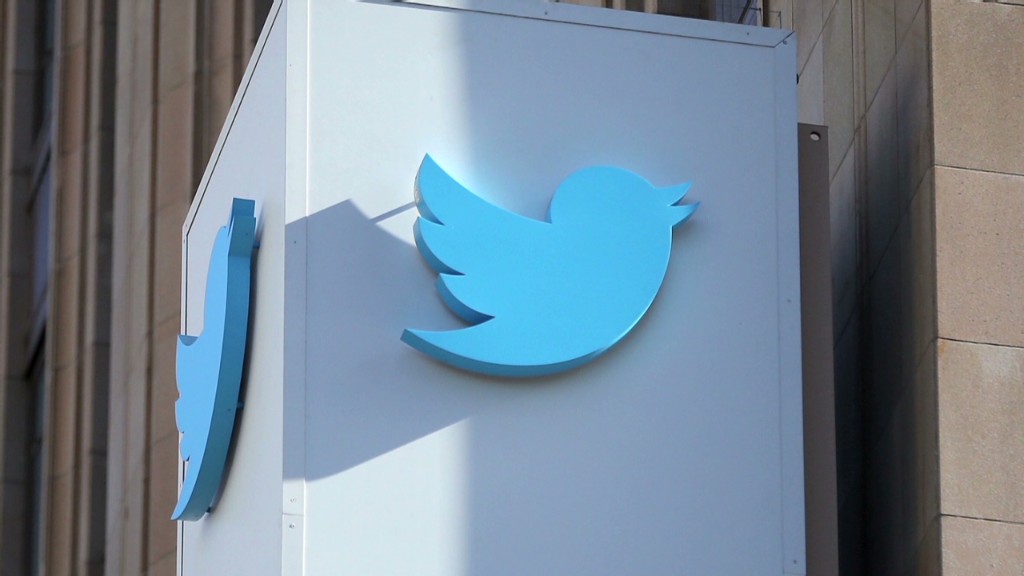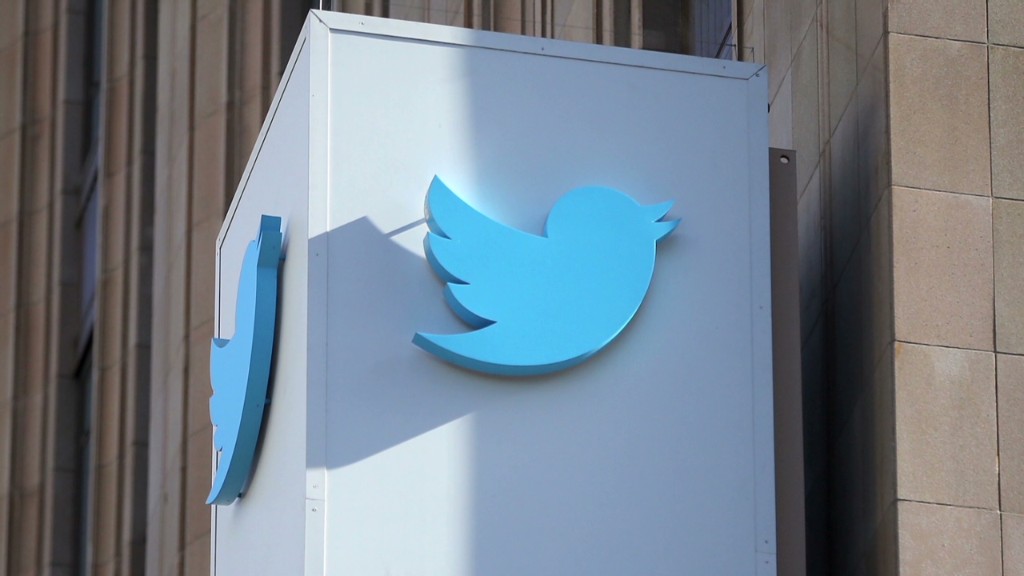
Twitter may be the hottest initial public offering of 2013. But the hype behind Twitter's market debut is not nearly as deafening as it was for Facebook last year.
Experts say that's a good thing.
Twitter (TWTR) has more than 230 million users and the social media site is rapidly growing. Still, several financial advisers said their clients aren't clamoring for shares of Twitter.
Tom Sedoric, a Portsmouth, N.H.-based financial adviser, said few of his customers are seeking Twitter shares. But he said he received a slew of calls last year before Facebook went public.
But a lack of interest from individual investors doesn't necessarily mean that Twitter's debut will fizzle like Facebook did on its first day. In fact, it could be the opposite.
"We got zero calls on LinkedIn so the correlations may be interesting," Sedoric said, referring to the first major social media company to go public.
Shares of LinkedIn (LNKD) more than doubled on their first day of trading in May 2011. But one year later, Facebook (FB) shares barely closed above their offering price of $38.
Related: Who will get rich from Twitter's IPO?
That's why one banker working on the Twitter deal who requested anonymity is hoping that the average investor does not rush into Twitter.
"If retail [investors] stayed out of the deal, that would be great," said the banker. "They are the least informed and experienced investors and had far too much influence on Facebook."
Facebook's underwriters gave a bigger cut to retail investors than is typically the case with IPOs. Online trading firms, such as E*Trade (ETFC) and Charles Schwab (SCHW), also found ways to make more shares of Facebook available to their customers.

TD Ameritrade (AMTD) said the brokerage firm expects to receive an allocation that will be distributed to clients. The company is not sure yet how many shares it will receive.
E*Trade and Schwab declined to comment on whether their clients will have any special access to Twitter's shares. But most experts think the Twitter IPO will be more traditional. The bulk of shares will be doled out to major mutual funds and hedge funds, not the little guy.
Scott Sweet, senior managing partner at the research firm IPO Boutique, said there is huge demand for Twitter's IPO from mutual funds and other institutional investors.
To that end, Twitter's underwriters increased the price range for the stock on Monday. Twitter is now expected to price its offering between $23 and $25 a share, up from an earlier range of $17 to $20.
Andrew Beja, a portfolio manager at the Granahan Small Cap fund, said he thinks Twitter's stock is compelling in the $23 to $25 range. But he is not sure if he'd be as big of a buyer of Twitter's stock if the price goes much higher than that.
Sweet said Twitter's underwriters have so far been more conservative about pricing than Facebook's underwriters. Facebook originally set a price range of $28 to $35 a share before raising that target to $34 to $38.
Related: Twitter who? The Container Store doubles in its IPO
The demand for IPOs overall this year is also very different than last year.
"It's a far better market for IPOs than when Facebook came out," said Sweet.
In 2013, shares of companies that have gone public have gained an average of 50% from their IPO price. That's double the returns of the S&P 500.
Most analysts say that all parties involved in Twitter's IPO are doing everything they can to avoid the problems surrounding Facebook's IPO. That includes test runs by the New York Stock Exchange, where Twitter will sell shares. Facebook listed on the Nasdaq and the stock's debut was marred by technical glitches.
"You have to assume that the people making the decisions for Twitter have not forgotten the lessons of Facebook and are not shooting for the moon," said Lise Buyer, an IPO advisor and the founder of Class V Group. "They are well aware of the negative ramifications of IPO swan dives."
There's one other big difference between the Twitter and Facebook IPOs. Twitter is only selling 70 million shares in its offering. Facebook sold more than 484 million.
So even if individual investors avoid Twitter, there is still a relatively small supply of Twitter shares available for the pros. And that could lead to a first-day pop for Twitter ... unlike Facebook.


